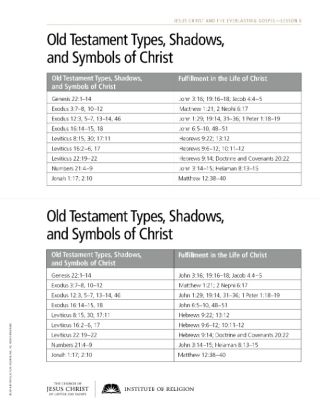Best Order To Read The Bible For The First Time
Best Order To Read The Bible For The First Time
The Bible is the most influential book in history. It has had a profound effect on literature, science and theology. Yet for all its influence, it’s not always easy to read. With 66 books written over 1,500 years by 40 different authors in three languages, the Bible can be hard to understand if you’re new to it. But if you know how to read it well, studying scripture can be a deeply rewarding experience that helps guide your life throughout your journey here on earth.
What is the best order to read the bible?
The best order to read the Bible is as follows:
- Old Testament (Genesis, Exodus, Leviticus, Numbers, Deuteronomy)
- New Testament (the Gospels and Acts of the Apostles)
- Epistles (letters from Paul and others)
- Prophets such as Isaiah and Jeremiah
What is the historical order of the Bible books?
The Bible is divided into two parts: the Old Testament and the New Testament. The Old Testament is divided into three divisions: 1) The Law; 2) The Prophets; 3) The Writings.
The New Testament is also split up into three parts (4 Gospels, 13 Letters, and an Apocalyptic Book).
What is the recommended order to read the Bible?
The Bible is a large, complicated book that covers thousands of years. The Bible contains 66 books from different authors and written in a variety of styles and genres. For this reason it can be hard to know where to start; there are so many options!
Here are some tips for reading the Bible:
- Start with the Old Testament followed by the New Testament (or vice versa). This will give you an overall understanding of what God’s plan has been all along and how the two testaments fit together.
- Read through all four Gospels before moving on to anything else in either Testament or any other part of Scripture. This way you won’t get distracted by details about Jesus’ life that aren’t central themes until later on in your journey through God’s Word.
Step 1: Get A Good Study Bible.
The first thing you need to do is get a good study Bible. A good study Bible will have notes, maps, timelines, and other helps in it that will help you as you read through the Bible. Study Bibles are usually more expensive than regular Bibles because they contain these features; but if you’re new to reading the Bible or studying God’s Word in general I recommend getting a study Bible anyway because it will benefit your understanding of Scripture. Study Bibles are usually thicker than regular Bibles because they include more information and resources within their pages. They also tend to be wider than regular Bibles because they have extra space for all of those helpful aids that make them so useful!
Step 2: Make An Introduction To Your New Book.
As you’ll see in the Bible, there are introductions to every book. For example, if you’re reading the New Testament, there is a section called “The Letter to the Romans” that runs from Chapter 1 through Chapter 16. It serves as an introduction to what Paul has written to them in those six chapters. Read it! Get familiar with how these books start and end before diving in.
Step 3: Understand The Historical Context.
The Bible is a collection of books written over a long period of time by different authors for different audiences. It’s important to understand these facts so you can better interpret the content and meaning of each book.
Step 4: Observe The Structure Of Each Book.
- Observe the structure of each book. Bible books are not just collections of random stories and sayings, but they have their own structures that are important to understand. For example, Deuteronomy has a double introduction (1:1–3:22; 4:44–26:19) and conclusion (32:46–34:12). Paul’s letters often have an opening greeting (1 Cor 1:1, 2 Cor 1:2), body or main part (1 Cor 3–7), closing words of thanksgiving and blessing (Rom 16) and closing greeting with additional comments about his ministry plans (2 Cor 13).
Step 5: Identify Key Characters, Places & Events.
Now that you have read Genesis, you should have some idea of the key characters in the story.
- Who are they?
- What do they do?
- Why are they important?
These questions will help you identify which main points of the Bible’s story you should pay attention to and remember as we continue through our study.
Step 6: Mark Up Your Bible.
Your Bible might be one of your most valuable possessions, so you want to ensure that it stays in good condition. To do this, we recommend using a pencil as often as possible. If you’re marking up the book of Proverbs, for example, a pencil will be much more forgiving than pen. That said…
- A highlighter is also useful if you want to make it easy for yourself to find important passages at a later date (or if you just want to look cool).
- If you don’t have access to either a pencil or highlighter but have an extra pen lying around somewhere—by all means use that instead! It’ll still work fine unless your notes require extreme precision (e.g., writing out Song of Solomon line by line).
How to read the Bible for maximum understanding and enjoyment
- Use a study Bible
- Understand the historical context of each book
- Understand the structure of each book and identify key characters, places, events and themes as you read.
- Mark up your Bible by underlining or highlighting verses that are meaningful to you. Some people mark their Bibles with symbols such as dashes (-), asterisks (*), or even checkmarks (✓). It’s also helpful to write notes in the margins to yourself explaining why certain words or passages stand out to you. This will help your mind connect more deeply with what you’re reading in Scripture. This can be done whether you’re reading on paper or electronic devices such as an iPad/iPhone/Android tablet device using apps like YouVersion: The Bible App™ to access audio commentaries by leading pastors and biblical scholars who explain difficult passages from both ancient history as well as modern times which have relevance today because they can give insight into how humanity reacts when faced with challenges just like yours!
I hope this blog post has helped you understand how to read the Bible in a new way. I know it can be intimidating at first, but once you start reading and learning more about God’s word, I am confident that you will become a lifelong student of scripture. There is so much wisdom to gain from God’s word!





